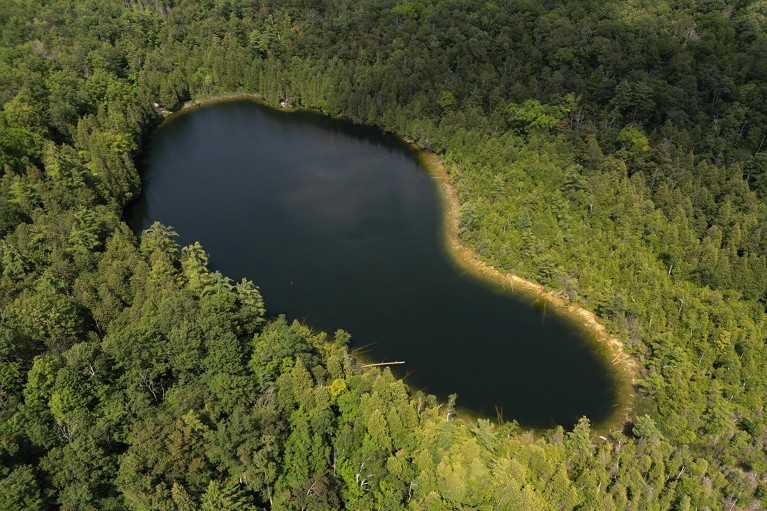- NEWS
- Correction 06 March 2024
Geologists reject the Anthropocene as Earth’s new epoch — after 15 years of debate

The sediments of Crawford Lake near Toronto, Canada, have collected and preserved signs of humanity’s impact on Earth, including microplastics and plutonium from hydrogen-bomb tests. Credit: The Canadian Press/Alamy
Access options
Access Nature and 54 other Nature Portfolio journals
Get Nature+, our best-value online-access subscription
$29.99 / 30 days
cancel any time
Subscribe to this journal
Receive 51 print issues and online access
$199.00 per year
only $3.90 per issue
Rent or buy this article
Prices vary by article type
from$1.95
to$39.95
Prices may be subject to local taxes which are calculated during checkout
Nature 627, 249-250 (2024)
doi: https://doi.org/10.1038/d41586-024-00675-8
Updates & Corrections
-
Correction 06 March 2024: An earlier version of this story incorrectly stated that there was a ten-year waiting period before a failed proposal could be resubmitted to the SQS. That waiting period applies to different circumstances, and there is no existing guidance on resubmitting failed proposals.
References
McCarthy, F. M. G. et al. Anthropocene Rev. 10, 146–176 (2023).
Walker, M. J. C. et al. Boreas 53, 1–3 (2024).

 Buried microplastics complicate efforts to define the Anthropocene
Buried microplastics complicate efforts to define the Anthropocene
 This quiet lake could mark the start of a new Anthropocene epoch
This quiet lake could mark the start of a new Anthropocene epoch
 Are we in the Anthropocene? Geologists could define new epoch for Earth
Are we in the Anthropocene? Geologists could define new epoch for Earth
 Humans versus Earth: the quest to define the Anthropocene
Humans versus Earth: the quest to define the Anthropocene







